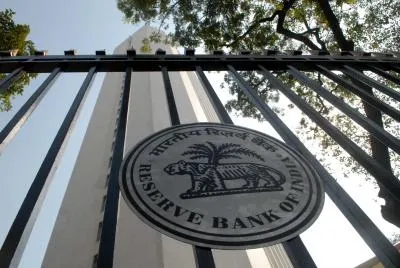Should Policymakers Monitor Global Crude Price Changes? Insights from RBI

Synopsis
Key Takeaways
- Policymakers must remain vigilant regarding evolving global crude prices.
- Government interventions can mitigate inflationary impacts.
- India's reliance on crude imports is increasing.
- Alternative energy sources need to be promoted.
- Efforts are underway towards achieving oil self-sufficiency.
New Delhi, July 24 (NationPress) While proactive government measures have managed to control the spillover effects on domestic oil prices, policymakers must remain alert to both the direct and indirect repercussions of the shifting global crude price landscape. This is crucial given India’s growing reliance on crude oil imports, as highlighted by the Reserve Bank of India (RBI).
In this context, the RBI emphasized that government strategies are essential for mitigating these impacts in a paper titled ‘Revisiting the Oil Price and Inflation Nexus in India,’ published in its most recent Bulletin.
“To alleviate dependence on crude oil, it is necessary to promote alternatives to fossil fuels and consider regional free trade agreements and bilateral accords with major oil-exporting nations to obtain oil at advantageous prices,” the paper suggested.
India’s net demand for crude oil imports has surged in recent years, driven by a rise in consumption and robust economic performance.
The relationship between oil prices and inflation is a critical factor influencing monetary policy in economies susceptible to oil price fluctuations, especially among net oil importers where escalating oil prices can significantly restrain economic growth and ignite inflationary pressures.
“The immediate effects of international crude oil price fluctuations on domestic petrol and diesel inflation, as well as indirect impacts through transportation and input costs, have become apparent post-deregulation. This is despite the government’s interventions with taxes, cess, and regulations of oil marketing companies that often mitigate the impact,” the RBI paper noted.
Empirical analysis indicates that a 10 percent rise in international crude oil prices could elevate India’s headline inflation by approximately 20 basis points concurrently.
“While the pass-through effect to retail prices has been kept in check due to active government measures, increasing reliance on crude oil imports may result in long-term inflationary pressures, necessitating ongoing vigilance and careful monitoring,” stated the RBI paper.
In the meantime, India is making significant strides towards achieving oil self-sufficiency. Under Prime Minister Narendra Modi's guidance, the nation is progressively securing its energy future, as recently stated by Petroleum Minister Hardeep Singh Puri.
Currently, 1 million square kilometers of offshore territory is available for oilfield exploration, and 99 percent of 'No-Go' zones have been lifted. The oil and gas blocks offered through the Open Acreage Licensing Programme (OALP) have already attracted interest from both domestic and international energy stakeholders, with Round X anticipated to set new standards for engagement and investment.









